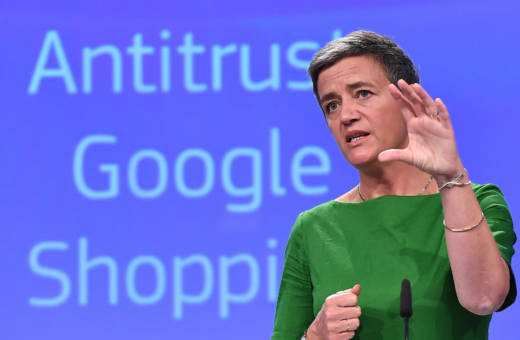The European Commission has fined Google 2.42 billion euros ($2.72 billion) after finding that the company used its dominant search engine to drive people toward another Google product, its shopping service.
"What Google has done is illegal under EU antitrust rules," said European Commissioner for Competition Margrethe Vestager. "It denied other companies the chance to compete on the merits and to innovate. And most importantly, it denied European consumers a genuine choice of services and the full benefits of innovation."
The amount of the fine, the European Commission said, is due to "the duration and gravity" of Google's actions. It gave the company 90 days to change its practices and display rivals' services in the same way it displays its own.
Google said it will review the fine and is considering an appeal. The company also defended the way it handles online shopping, saying that it connects users with advertisers "in ways that are useful for both."
"We respectfully disagree with the conclusions announced today," said Google general counsel Kent Walker.

9(MDAxOTAwOTE4MDEyMTkxMDAzNjczZDljZA004))
